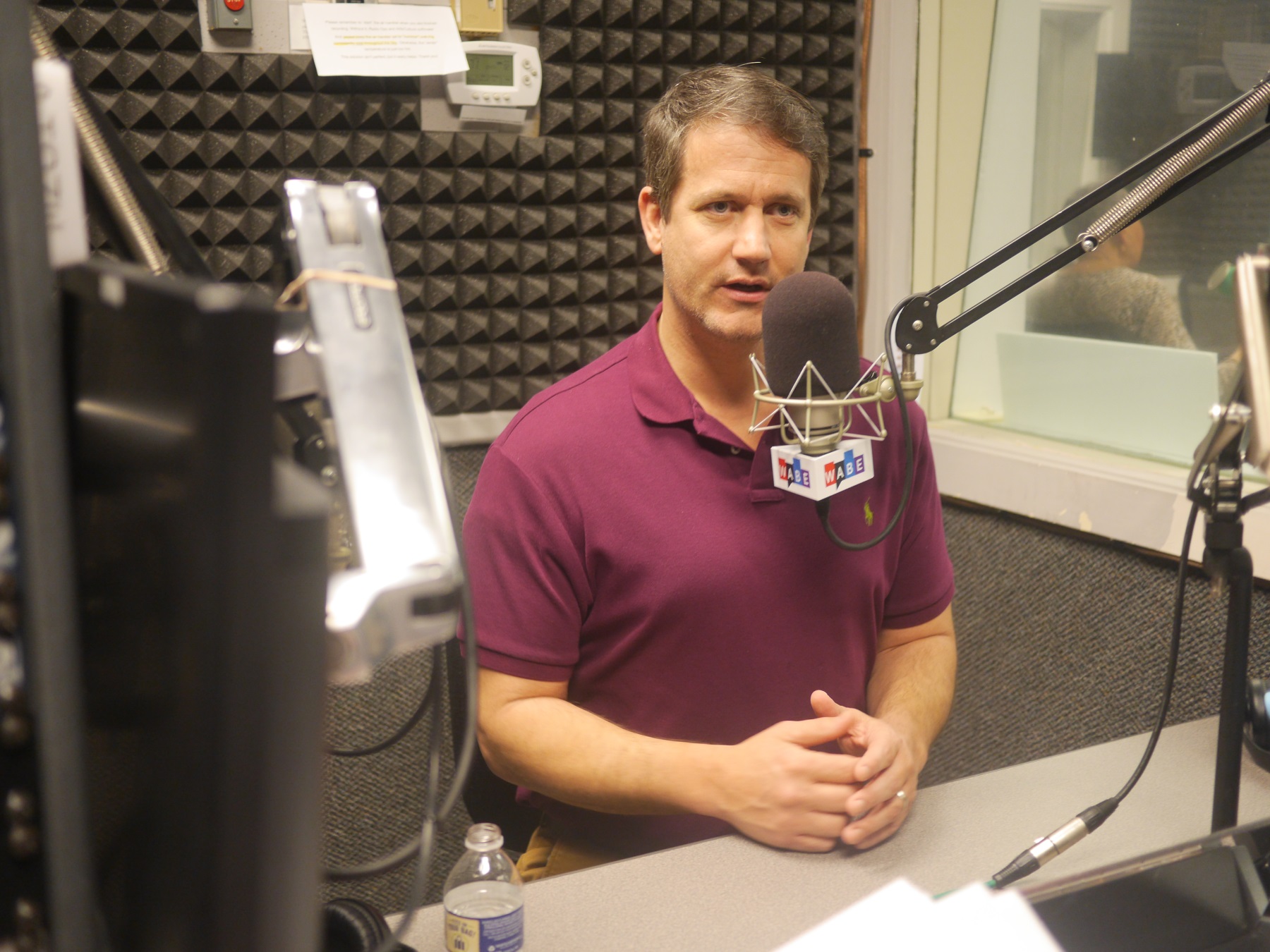Meet Republican Gubernatorial Candidate Michael Williams

Republican Michael Williams talked to WABE’s Denis O’Hayer about his candidacy for governor.
Sam Whitehead / WABE
In the lead-up to the May 22 primary elections, “Morning Edition” will feature conversations with the major party candidates for governor of Georgia. Republican Michael Williams joined Denis O’Hayer on April 10.
Williams is a certified public accountant and has represented a district in Forsyth County in the state Senate for the past four years.
Listen to the broadcast-length interview above and the full length below.
Get more information about Georgia’s candidates for governor >>
On where he’d start cutting to reduce the state budget
The Governor’s Office of Student Achievement. We still need to focus on the districts. We need to focus on the child [and] the education needs they have, but let’s do it within the Department of Education, and let’s do it at the local levels to make sure that our children get the education they need.
On tax breaks to lure business to Georgia
It’s crony capitalism. It’s not a good way to do business. You’ll hear how Georgia is the No. 1 state in the country to do business. [That’s] because we are great at giving away tax credits to large businesses. But for the rest of Georgia, for small businesses out there, we need to eliminate our state income tax. We need to deregulate. We need to make it easier for small businesses to thrive, not just big business.
On whether big business can stimulate economic growth
You are assuming that Atlanta and Georgia has an unlimited amount of growth. Well, we can only handle so much, and we’re already growing very fast. If we can’t create organic growth at very little to no cost, why do we want to pay billions of dollars to bring in businesses to Georgia?
On how he’d structure Georgia’s tax system after eliminating the state income tax
It’s going to be a combination of eliminating a lot of waste, as well as expanding in some industries. You look at offshore drilling. Texas, they don’t have a state income tax. A big part of Texas not having a state income tax is the oil and gas industry. As we expand our industries and offset some of that lost revenue, then you add the fair tax model, which is consumption-based.
On the uncertainty of revenues with a tax system that relies heavily on sales taxes
The way that you shield that is through having a strong reserve and a healthy business organization as well. Right now, Georgia has close to a $4 billion reserve account for that. And with me as governor, we would definitely have a more efficient government.
On how long it would take to reform the state’s Quality Basic Education funding formula
I could have the best laid-out plan right here in front of me that I could tell you. And even if I told you it today, that’s not going to be the results of what would pass two, three years from now. So, it’s having the determination, the grit to kind of push through getting that done and the willingness to sit down, talk and work with all the people involved to make it happen.
On his vote against the Hidden Predator Act, which eventually failed to pass
I voted for the bill every time it came up on the floor. The no vote that you’re referring to was to suspend the rules of the Senate, and this was at 10:30 at night on the last day of session. And when you suspend the rules for the Senate to appoint a conference committee that opens the door for anything and everything to happen. I don’t suspend rules. It’s not a good idea.
On whether he’d support a substantial state budget item for transit
Absolutely. We can cut waste. We can cut spending in some areas where we’re not getting a benefit [and] put them in areas where we will get a much better benefit, one of those being transit. We have a $26 billion budget. This is a lot of money. And I 100 percent know that we can take care of the needs, the priorities that the state should take care of if we do a better job managing the money and the organizational structure that we have.
On what efforts of Gov. Nathan Deal’s he’d continue and end
Criminal justice reform. Making it so that’s not a crime to be poor, it would definitely be something I would want to continue. The areas that I would differ [are] just going to be overall management and running of the state. As the governor, you’re the chief officer. It’s your job to make sure the state is run well, And I’d focus on the operational side of the state government.








